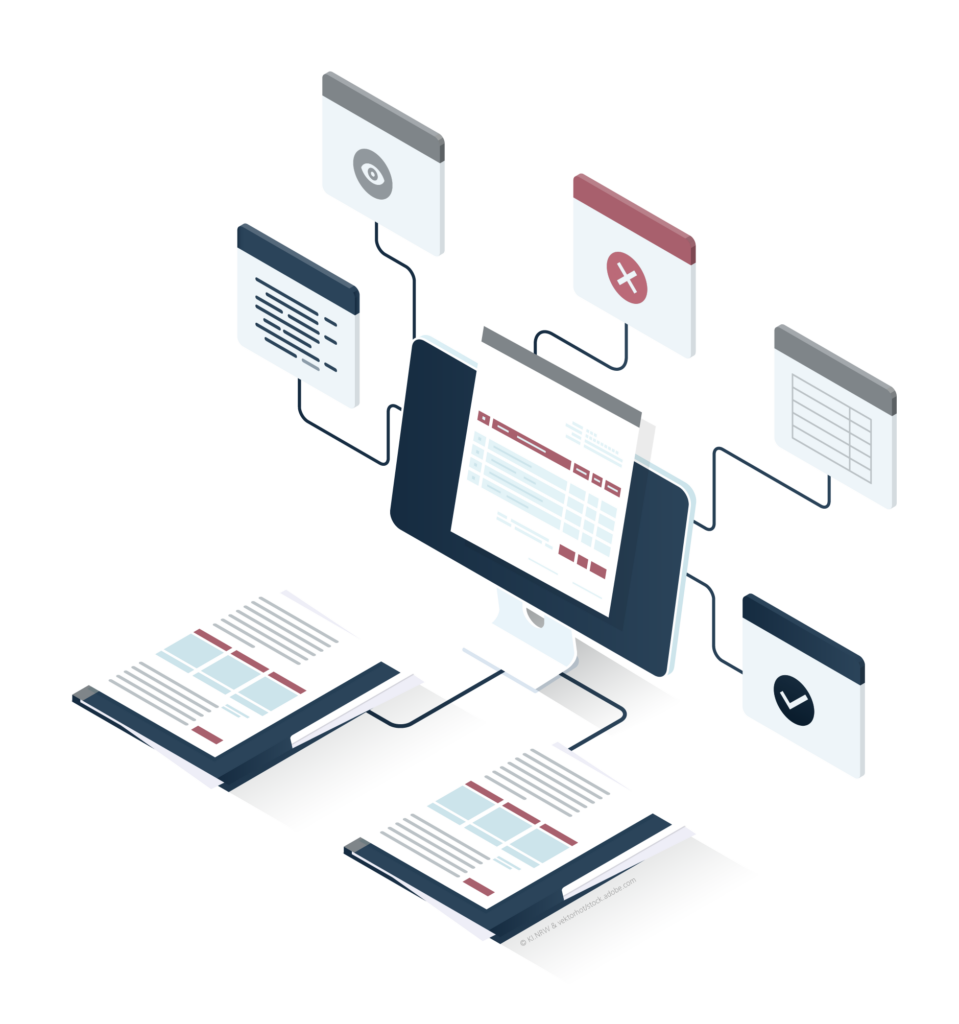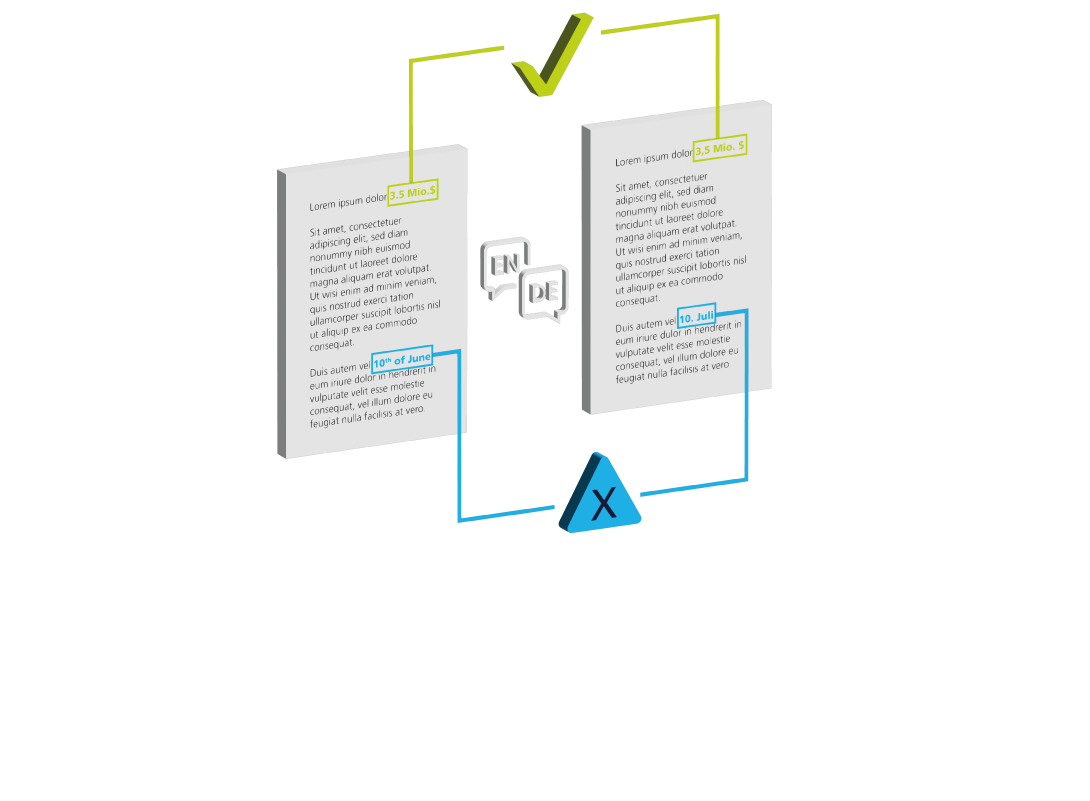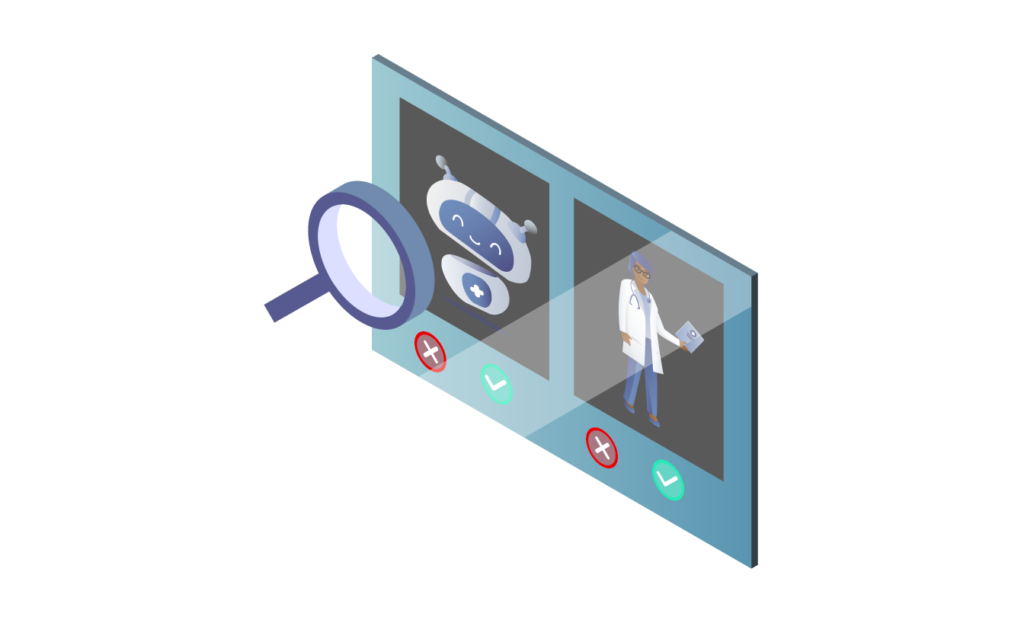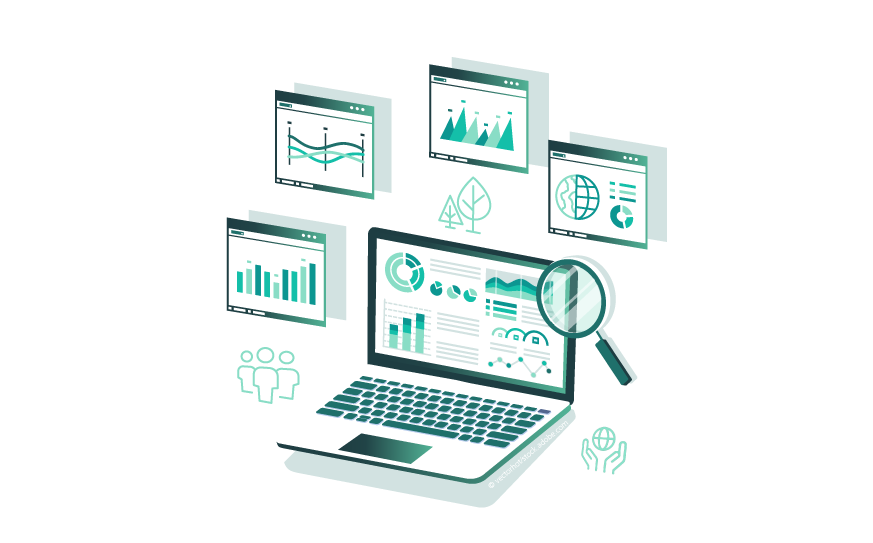“Translation Check” – The AI tool for checking document translations
Fast and error-free processing of annual reports: "Translation Check" enables controlling departments and agencies to check and adapt annual reports for possible translation errors in a short space of time.
Where does the AI application offer the greatest benefit?
The preparation of annual reports is mandatory for many companies worldwide. In Germany, this includes stock corporations, partnerships limited by shares, cooperatives, credit institutions, public-law insurance companies and companies that meet the size criteria of the Disclosure Act. In certain cases, it may be necessary to translate the report from German into other languages. This applies, for example, if companies are active in the export business, if they have an international focus or if they are looking for local investors or business partners in other countries.
When translating such reports, it is essential that they are accurate and legally flawless. Accordingly, financial documents in particular require the utmost precision and care in order to avoid negative consequences. Until now, however, the translation and review of such documents has been a time-consuming, tedious process that is prone to errors. Overall, financial translations present specific challenges and require corresponding expertise in the financial sector. In addition to being susceptible to format errors, translations of annual reports are also particularly prone to semantic errors. The difference often seems minor and is not given much attention, but this can have serious consequences, especially as annual reports can be decisive for investments and shareholdings, for example.
What are the quality features of “Translation Check”?
- Time savings: The KI.NRW demonstrator enables annual reports to be checked quickly and efficiently. With the help of AI models, text passages are checked and evaluated for content equivalents.
- Integrated feedback and adaptability: The built-in feedback system allows users to evaluate the indications provided by the system. Based on the feedback, the model can then be further trained and the quality of the results continuously improved.
- Overview and context: The integrated PDF viewer offers users the option of displaying any passages that are not consistent. In addition, all exam results can be exported as excel, which makes it easier to edit the documents later.
“Companies may need to translate their annual report from German into other languages. Translation Check uses AI models to support fast, efficient translation checking.”
Which AI technology is used in the KI.NRW demonstrator?
Modern language models are neural networks that are trained to predict a word based on its context. In this way, it learns an effective representation for all words in the text and is able to compare and classify text passages semantically.
PDF is a widely used unstructured file format. This means that although headings and tables are visually recognizable for readers, unlike .docx or .xlsx, for example, there is no structure that can be easily read automatically. In order to be able to work with PDFs automatically, intelligent image processing algorithms are required that extract this structure from the images and correctly classify objects such as tables and paragraphs.
What does the AI demonstrator show?

The AI-supported checking system is an intelligent, automated analysis of document translations. You can upload your own documents as well as have provided documents checked for possible translation errors such as format or tone.
Request a non-binding consultation with our experts now!
Curious? Click here to go straight to the demonstrator!
Where can I find more information?
AI.Map featuring entries in the field of data analysis and forecasting
More AI providers, applications, and AI products »made in NRW« with the same AI focus can be found using the filter and search function of the AI.Map, which currently contains more than 1300 entries.
Study on “Modern language technologies”
Find out where we encounter modern language technologies in everyday life and at work and what economic opportunities they offer.
Fraunhofer IAIS: Business unit Cognitive Business Optimization
Digitalisation in auditing, administration, controlling and more: Find out how you can efficiently analyse business documents and processes with the help of AI.
Contact the team of developers

Maren Pielka
Data Scientist and Team Leader Cognitive Text Analytics,
Business Area Cognitive Business Optimization,
Media Engineering Department
Fraunhofer IAIS
Schloss Birlinghoven
53757 Sankt Augustin
Phone +49 2241 14-2871

Tobias Deußer
Data Scientist
Geschäftsfeld Cognitive Business Optimization,
Abteilung Media Engineering
Fraunhofer IAIS
Schloss Birlinghoven
53757 Sankt Augustin
Telefon +49 2241 14-2303






